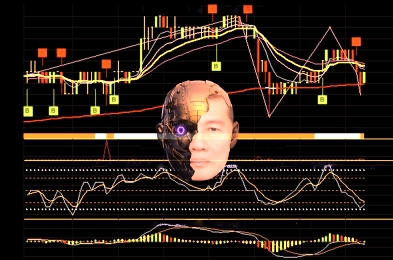26 September 2016
 From the FlashCrash to robot-driven financial advice, just how digital disruption is changing the face of Finance and Capital Markets is one key focus of a two-day conference hosted by UniSA Business School on September 29 and 30 at the Adelaide Rockford Hotel.
From the FlashCrash to robot-driven financial advice, just how digital disruption is changing the face of Finance and Capital Markets is one key focus of a two-day conference hosted by UniSA Business School on September 29 and 30 at the Adelaide Rockford Hotel.
The event, bringing together some of the nation’s leading researchers in behavioural finance and capital markets, will focus on everything from market fairness and the looming impact of robo-trading on middle management, to how superstition may be impacting property markets.
UniSA Professor of Finance Petko Kalev says, just as in most industries, digital disruption is shaking things up in the nerve centre of capitalism.
“The conference will spotlight global research about the impacts new technologies on the industry – including the trading strategies and profits of super-fast traders and the topical issue of whether High Frequency Traders need to be regulated, which will be addressed by Emory University’s Prof Tarun Chordia,” Prof Kalev says.
Professor of Experimental Finance and Decision Neuroscience at the University of Melbourne, Peter Bossaerts will also present his 25-year assessment of the influence of robot trading on markets.
Another highlight of the conference is an industry panel session on the impact of Financial Robo Advice featuring Joseph Barbara from ASIC; CEO of Ignition Wealth, Mark Fordree; CEO of OpenMarkets, Rick Klink and Founding Partner and CIO of Jevons Global, Dr Kingsley Jones.
“We know the finance industry is changing, and as educators, we need to be looking at the range of skills the next generation of finance and investment managers need is they are to stay relevant,” Prof Kalev says.
“They are the generation for whom robo-trading will be the norm but they will need to really understand the technologies at play – their strengths and their vulnerabilities.
“It is clear that in this phase of technological development, middle management jobs in the industry are very vulnerable and we need to be thinking about the skills sets that will be enduring in the industry.”
The conference includes a host of papers also looking at more intangible elements that affect markets including the weather and the role and personalities of CEOs.
Papers to be presented include one examining how the hours of sunshine and how the positive mood that they induce in executives, influences their assessments of the benefits and risks associated with earnings management; whether superstition around lucky and unlucky numbers has an impact on property and rental markets; and the “overconfident CEO” and if it is their mistakes or optimism that impact the most on corporate investment performance.
Prof Kalev says the Behavioural Finance and Capital Markets Conference is unique in bringing together both scholars and practitioners, and in highlighting theoretical, empirical and experimental research papers.
“We look at the industry but with an investigative eye, taking into account the wide range of factors that influence global financial markets from technological change, to the psychological and behavioural factors – or our very human nature,” Prof Kalev says.
The conference will be opened by UniSA Vice Chancellor Professor David Lloyd.
This year, for the first time, the conference dinner speaker will be from the finance industry - CEO of Behavioural Finance Australia, Simon Russell, speaking on the Gaps between Behavioural Finance Research and Application.
More information including the fill program is available online.
Media contact: Michèle Nardelli mobile: +61 418 823 673 email: michele.nardelli@unisa.edu.au


